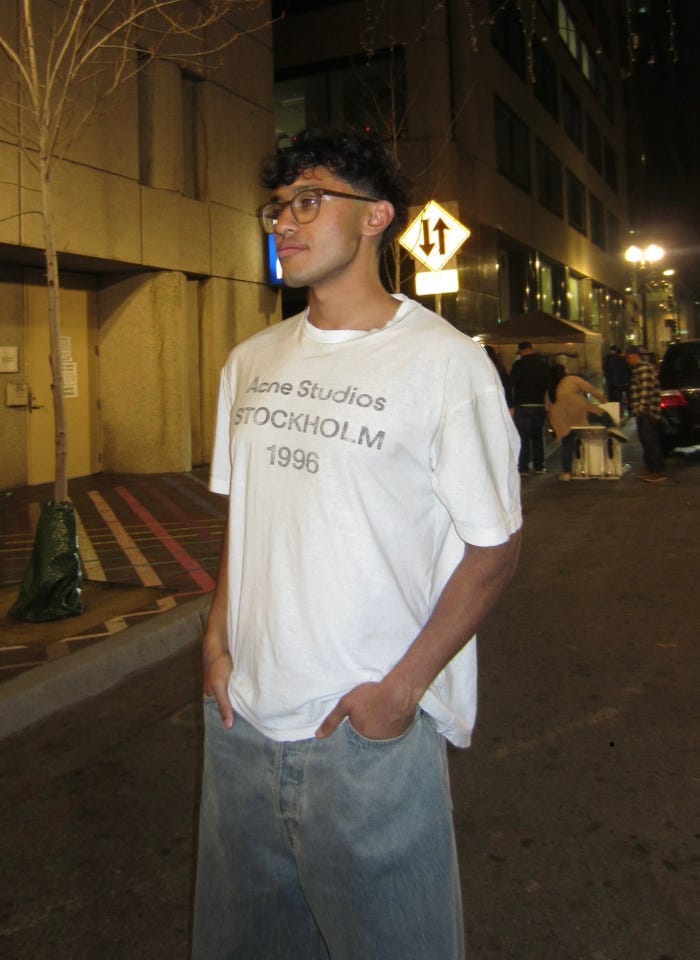Health
Young Applicant’s Rejection from Anduril Sparks Valuable Lessons

Ibrahim Shah faced a setback in his career aspirations when he was rejected from a coveted early-career software engineering position at Anduril. The 22-year-old student from the University of California, Irvine, reached the second round of interviews but was ultimately told by a recruiter that he came across as “aloof and indifferent to the role.” This experience has led Shah to reflect on the importance of authenticity during interviews, particularly when nerves are high.
Shah’s journey began with a strong initial phone screen that set a positive tone. He expressed his enthusiasm for working at a company with significant impact, particularly one that collaborates with the US government on defense projects. “I studied probably 80 coding questions for the past few weeks leading up to this,” he said, demonstrating his commitment and preparation for the technical portion of the interview.
However, during the technical assessment, Shah found himself overwhelmed by anxiety. His nerves manifested in a demeanor that the recruiter interpreted as disinterest. “I was anticipating really hard questions, and that’s pretty much all I was thinking about,” he explained. This preoccupation detracted from his usual expressiveness, leading him to appear detached during the interview.
Reflecting on the feedback he received, Shah remarked, “My main takeaway is that it’s better to be nervous and authentic than to pretend like you have composure.” He recognized that trying to project calmness can sometimes obscure genuine feelings about a potential employer. “I can’t believe I messed up on the behavioral aspect,” he added, expressing regret over what he perceived as a missed opportunity.
Despite this disappointment, Shah has not let the rejection deter him. The experience has sparked an unexpected wave of interest from other companies. He mentioned that several startups, including Perplexity and Thinking Machines, have since reached out for interviews. This renewed attention demonstrates how setbacks can sometimes lead to unforeseen opportunities.
After publicly sharing his experience on social media, Shah received a supportive response from Matt Grimm, co-founder of Anduril. Grimm acknowledged the negative feedback on Shah’s experience and emphasized the importance of constructive criticism in the hiring process. “We get a lot of nonsense hater flak… It was worth saying something,” Grimm tweeted. This dialogue highlights the growing conversation around the pressures of job interviews, particularly in high-stakes fields like technology and defense.
Shah’s journey serves as a reminder to many young professionals that interviews are not only assessments of skill but also opportunities to convey passion and authenticity. As he moves forward, Shah plans to compartmentalize his thoughts during interviews, allowing him to focus on each segment more effectively without the anxiety of what comes next clouding his performance.
By embracing his vulnerabilities and learning from the experience, Ibrahim Shah is poised to carry these lessons into future opportunities, potentially shaping a successful career path in technology and entrepreneurship.
-

 Science1 month ago
Science1 month agoNostradamus’ 2026 Predictions: Star Death and Dark Events Loom
-

 Technology2 months ago
Technology2 months agoOpenAI to Implement Age Verification for ChatGPT by December 2025
-

 Technology7 months ago
Technology7 months agoDiscover the Top 10 Calorie Counting Apps of 2025
-

 Health5 months ago
Health5 months agoBella Hadid Shares Health Update After Treatment for Lyme Disease
-

 Health5 months ago
Health5 months agoAnalysts Project Stronger Growth for Apple’s iPhone 17 Lineup
-

 Technology5 months ago
Technology5 months agoElectric Moto Influencer Surronster Arrested in Tijuana
-

 Education5 months ago
Education5 months agoHarvard Secures Court Victory Over Federal Funding Cuts
-

 Health5 months ago
Health5 months agoErin Bates Shares Recovery Update Following Sepsis Complications
-

 Technology6 months ago
Technology6 months agoDiscover How to Reverse Image Search Using ChatGPT Effortlessly
-

 Technology7 months ago
Technology7 months agoMeta Initiates $60B AI Data Center Expansion, Starting in Ohio
-

 Science4 months ago
Science4 months agoStarship V3 Set for 2026 Launch After Successful Final Test of Version 2
-

 Technology7 months ago
Technology7 months agoRecovering a Suspended TikTok Account: A Step-by-Step Guide





















